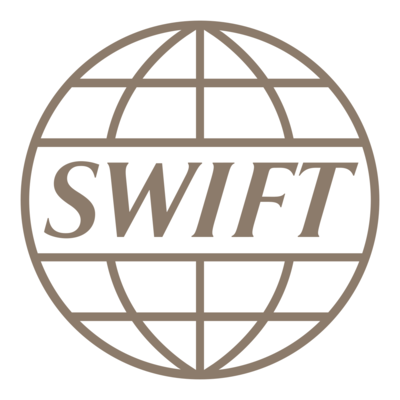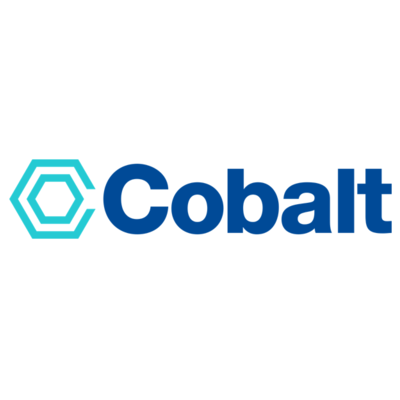Published
- 05:00 am

uPort, a digital identity platform anchored on the Ethereum blockchain, is excited to partner with Onfido, a global identity verification provider, and PwC, a leading professional services firm, to explore portability of consumer identities in the financial services sector in the United Kingdom and beyond.
uPort and Onfido have a shared vision of enabling consumers with access and control over their own data. Earlier this year, both companies applied to and were accepted to the UK’s Financial Conduct Authority Regulatory Sandbox (Cohort 5) to test how decentralised identity can enable fintech ecosystems in the UK. PWC’s UK team, believing that such technology can be a key factor to promote more open financial ecosystems, is partnering with them in this pilot. In joining forces, the teams are committed to building a world where users have control over managing their personal data, and where decentralised identity reintroduces trust and privacy into transactions between parties.
Financial institutions today continue to face high costs related to KYC and AML compliance efforts. These make customer onboarding processes expensive and time-consuming, leading often to customer drop-off and poor customer experiences. In addition to onboarding frictions that make customer identification efforts costly, data silos and privacy regulations prevent the seamless mobility of customer data between financial institutions and the ability for customers to create more holistic, open financial reputations. In joining forces, the three teams are exploring how portable identity verifications can improve customer onboarding journeys and reduce compliance costs for financial firms.
Mike Kennelly, Director at PwC focused on Open Banking and Digital Transformation, stated that “The ability for customers to use their digital identity to on-board seamlessly with financial firms will be game-changing. It opens up access to financial services, helps reduce fraud and is instrumental in driving more competition into the U.K. banking ecosystem. PwC analysis suggests technological step changes in the banking sector could bring a boost of more than £34.6bn to the UK’s economy by 2030.”
Alice Nawfal, Strategy and Operations Lead of uPort, says “With PSD2, the UK-wide directive that came into effect on September 14th, 2019, we see an increased demand for secure and privacy-preserving solutions that facilitate personal data sharing between financial institutions. Our view is that consumers will eventually be able to build dynamic, robust financial identities based on data from all financial institutions they have accounts at, and be able to port their identities across service providers.”
One of the more immediate areas of exploration that the teams will test is how a portable identity ecosystem can transform the way UK financial institutions collect and use information to verify customer identity and satisfy customer due diligence / KYC obligations.
Husayn Kassai, Onfido’s Co-Founder and CEO, comments “We know the old shared identity ecosystem of centralised models simply no longer works - it doesn’t work for customers because it’s vulnerable to being hacked, nor does it work for businesses since, for example, knowledge-based questions are no longer robust, because of the hacks. We believe in a world where identity is the key to access and this key should be held only by the customer, but used across multiple businesses to aid access and convenience, faster onboarding without compromising security, and improved KYC and CDD processes.”
Related News
- 05:00 am

The independent not-for-profit standards association, BIAN (Banking Industry Architecture Network), today launched its ‘Coreless Bank’ initiative.
The initiative, spearheaded by a leading association of banks, solution providers and academic institutions will provide a platform for banks to collaborate with leading software vendors on developing a future-proof, regulatory-compliant and universally compatible banking infrastructure based on BIAN micro-services.11 BIAN members have already taken up support of the initiative at a pilot stage, including PNC, Citi, Wells Fargo, JPMorgan Chase, Bangkok Bank, CIBC, IBM, Technisys, Infosys, Finxact and Zafin.
The Coreless Bank initiative aims to promote a more efficient and effective approach to modernising banking software. The collaboration between initiative partners will make it easier for banks to source and adopt new business services. This will solve the perpetual challenges presented by legacy core infrastructure, and allow for faster, more cost-effective development of services that are more relevant for today’s digital-first customers.
The initial focus of the pilot is to develop API-based micro-services covering consumer payments, customer offers and consumer loans. BIAN’s Coreless Banking platform will permit the following functions:
· Complete plug and play functionality, to ensure no impact to user experience
· Fully deployable to the cloud, so users can take advantage of modern software development techniques
· Bank consumable API interface to orchestrate (where necessary) BIAN APIs and reduce network traffic
· Cross domain orchestration to also reduce network traffic
Commenting on the launch of the ‘Coreless Bank’ initiative, Steve Van Wyk, Chairman of the BIAN Board, said: “Banks have been limited by outdated core infrastructure solutions for decades. In an open banking world, technology is making it incredibly difficult and costly to innovate at the speeds required to fulfil customers’ needs. Migrating away from legacy technology is a big challenge. With BIAN’s Coreless Bank initiative, however, BIAN will help banks overcome these obstacles. We are putting banks in the driver’s seat, giving them a role in the development of services that are more relevant to the needs of their customers.”
Ian Gillard, Executive Vice President, Bangkok Bank said: “The future of banking is being reimagined as we face disruption from every angle. Consumer expectations are changing, new business models are shaking up the status quo, and it is becoming harder and costlier to update our technology systems in such a dynamic environment. We’re proud to be part of BIAN’s Coreless Banking Initiative and the broader community that is leading this industry development.”
Al Karim Somji, CEO of Zafin, said: ”Coreless Banking can be a reality as proven in the pilot. It requires commitment to open banking, investment and collaboration between banks, vendors and BIAN. We are excited to be playing a role in BIAN’s initiative and are committed to making Coreless Banking a reality for our clients working within the BIAN ecosystem.”
An overview of BIAN’s Coreless Banking initiative will be shown at SIBOS on Wednesday 25th September at 13:30 on the Discovery Stage. BIAN will also be demonstrating the plug and play functionality of the platform at its stand (31B) throughout the course of the event.
Related News
- 03:00 am

Trustology, a UK based fintech company, focused on accelerating the crypto economy, today announced the beta launch of its Business Account Designed to safeguard cryptoassets held by businesses of any size ranging from small funds,
corporates to large institutions, the TrustVault Business Account offers an easier and safer way for account holders to secure and manage their crypto assets from the convenience of a mobile device or via API integrations. Offering a radically faster way to send, receive and store assets, processing transactions in under one second.
The Business Account builds on the success of Trustology’s first product, the TrustVault Individual Account, is a cryptoasset security and management platform that safeguards private keys without compromising speed, ease-of-use or access.
Until now, securing and managing private keys at scale has been a big challenge in the market. TrustVault solves this issue. Private keys are managed by Trustology developed firmware within tamper-proof programmable hardware security modules (HSMs), hosted in secure data centres with highly-available multiple encrypted backups.
This ensures institutional-grade security, even when sending and receiving funds, as the assets’ private keys are never exposed. If the phone is lost or inaccessible, Trustology offers the ability to recover the account on another device, since the private keys are not stored in the phone itself.
TrustVault for business delivers this security and more. The account offers a reliable, fully hosted, flexible crypto asset custodial wallet solution that allows companies to build up their cryptoassets operations at speed and scale while optimising on cost, control and business agility.
Other major benefits include multi-asset accounts, blockchain agnostic security tools such as white/blacklists, multisig rules, and instant transfers anytime and anywhere. Users can stay on top of moving markets and oversee their cryptoassets in real-time from their mobile phones or through APIs. Instead of relying on Omnibus accounts that come with inherent risks, TrustVault opts to use, creating a unique key per account which ensures there is no co-mingling of funds.
The new solution also supports meeting regulatory and compliance obligations with robust built-in KYC, AML, and ID verification processes, including personal info, documentation, PEP, sanction and adverse media checks, and ongoing suspicious activity reporting.
Programmable custody rules will soon be made available to support the addition of extra safeguards across any cryptoasset or protocol with flexible user-defined custom granular controls. Security and ownership are the main issues holding back institutional investors and the global adoption of digital currencies. According to a report by CipherTrace Cryptocurrency Intelligence, over $1.7 billion worth of cryptocurrencies was stolen from investors in 2018. Of that total, roughly $1 billion was taken from exchanges.
“We’ve developed a product that meets the demand for developing a tamper-proof solution that protects crypto assets,” said Alex Baitlin, CEO, Trustology. “TrustVault brings us closer to realising the full potential of the crypto economy and its underlying blockchain technology by prioritising security without compromising on speed, ease-of-use or access to crypto assets. Our business account gives institutions the peace of mind they need to store their keys with the best security measures available.”
Related News
- 03:00 am

Appian (NASDAQ: APPN) today announced availability of a new solution that accelerates customer and asset onboarding while reducing risk of implementation for treasury management, foreign exchange, and investment firms. The Institutional Onboarding solution delivers pre-built data records, AI-based document understanding, and packaged integrations to simplify and accelerate onboarding. The result is increased customer engagement and satisfaction from the first point of contact. All of this is delivered on Appian’s low-code platform, making it easy to configure the solution to a financial firm’s unique requirements and often complex legacy technology environment.
Onboarding institutional customers through manual processes and disconnected systems is difficult, slow, opaque, complex, and risky. Institutions must manage a variety of approaches, processes, systems and data sources - both within the institution and across the industry. The Appian Institutional Onboarding for Financial Services solution provides complete process visibility to internal constituents and customers, and allows institutions to prioritize their onboarding resources. The solution unifies customer communications across all channels, centralizes document management, and helps reduce the time it takes to identify and resolve potential risks stemming from variations in products, geographies, categories, and industries.
The solution features:
- Pre-built data records for Customers, Accounts, and Products. Using Appian’s unique Records data management capability, users get a complete, 360-degree view of a customer and the full onboarding context, regardless of where that data resides across the organization.
- Intelligent document understanding. The solution includes built-in AI services for intelligent content extraction and automated document assembly. This saves enormous amounts of time and effort previously spent manually parsing incoming documents and transferring data from one document to another.
- Business-user process control. The solution puts the power of process and task management in the hands of onboarding professionals. This includes automated import of tasks and checklists from legacy Excel spreadsheets.
- Pre-built integrations to key legacy systems. The new solution leverages Appian’s Connected Systems architecture for zero-code integration to Salesforce.com. It also includes integration to the Office of Foreign Assets Control (OFAC) database maintained by the US Department of the Treasury.
“Emerging FinTech, constantly changing regulations, and disruptive new business models are all increasing the pace of change in financial services,” said Michael Heffner, Global Industry Lead at Appian. “Despite this rising complexity, the need to quickly create strong new customer relationships remains. With our Institutional Onboarding Solution, we have eliminated the complexities of getting those high-value relationships up-and-running.”
Because the solution inherits all of the speed, power, and security qualities of Appian’s low-code platform, it delivers faster value than traditionally-coded or commercial off-the-shelf onboarding solutions. Through visual composition, the solution is quickly and easily configurable to the unique way an organization operates, including low-code and no-code integrations across a typically complex financial firm IT architecture. The solution uses Appian’s powerful case management and intelligent automation capabilities to unify enterprise data and accelerate the pace of work. In addition, the solution delivers industry-leading security and compliance, mission-critical reliability, and unified governance.
Related News
- 09:00 am

Pepper, Bank Leumi's mobile-only challenger bank, today launched a revolutionary new investment app, Pepper Invest. It enables customers to buy fractional shares in some 100 shares of top US companies (traded on the S&P 100 index), such as Facebook, Apple, Amazon, Coca-Cola, Ford, Starbucks, Goldman Sachs, Nike and Netflix, with a minimum investment amount of NIS 50.
Pepper Invest makes the US capital market accessible to a younger and wider audience (aged over 18); it is enabling those with no prior experience or knowledge of the capital markets or those who were deterred by broker commissions and other fees to start investing.
With a user-friendly language and interface, Pepper Invest provides customers with easy to follow trading insights, including comprehensive information about all the stocks available on the app, analysis of past stock performances, analysts’ recommendations, news, hot updates, a glossary of capital market terms, and more.
Pepper Invest is based on a simple and straight forward fees model, which includes a uniform quarterly management fee of 0.2% of the portfolio’s value (0.08% annually), regardless of the amount invested or number of transactions made by the customer during each quarter. The new model gives customers full transparency and does not charge the customary trading fees and commissions, such as stock trading fees (per share), minimum fees, custodial fees, brokerage fees and other hidden fees.
Michal Kissos Hertzog, CEO, Pepper comments: “Pepper Invest offers a unique trading experience, allowing customers to invest according to their financial abilities, without needing to purchase an entire stock. Pepper Invest represents a veritable revolution, in which technology not only changes the way we consume financial services, but also serves as a tool for financial education and empowerment of the younger generation.”
Looking forward, Pepper Invest is expected to boost its share offering in addition to enable trading in leading US ETFs.
How does Pepper Invest work?
After a brief registration procedure, Pepper Invest customers will have their US dollar investment account opened, dedicated solely to investment in foreign stocks. Any buying and selling transactions will be conducted through the USD account. If there are insufficient funds to pay for a certain transaction, the absent amount will be automatically charged to the customer’s Pepper NIS current account, by converting NIS to USD dollars at the time of giving the buy order.
Market orders can be given at any time, 24/7, with the buying and selling transactions carried out close to the end of the trading day on the relevant US stock exchange (NYSE and/or NASDAQ). As mentioned above, Pepper Invest is the first app in Israel - and one of a few worldwide - to offer trading in fractional shares, at a minimum of NIS 50.
Related News
- 09:00 am

Visa Inc. (NYSE:V) today announced that its Visa B2B Connect network has doubled its reach – from 30 global trade corridors at launch in June 2019, to 62, with the goal to expand to over 100 countries in 2020.
In addition, Infosys, a global leader in next-generation digital services and consulting, is integrating with the Visa B2B Connect network to bring Visa B2B Connect platform access to their participating financial institutions worldwide.
Through this new connection, participating financial institutions worldwide can take advantage of the ability to quickly and securely process corporate cross-border payments globally through Visa B2B Connect.1
“Visa B2B Connect is a fast, secure and more efficient network, designed specifically to overcome obstacles in the cross-border corporate payments space,” said Alan Koenigsberg, global head, new payment flows, Visa Business Solutions. “We are excited to bring on Infosys and expand Visa B2B Connect to new geographies – all in a joint effort accelerate innovation and increase efficiencies for financial institutions and their corporate clients.”
In addition to Visa’s new collaboration with Infosys, participating clients can also connect to Visa B2B Connect through Bottomline and FIS, Visa’s previously-announced hub partners.
Participating clients can now connect to Visa B2B Connect via Bottomline’s Universal Aggregator. Joint customers can take advantage of Bottomline’s modern API connectivity to effortlessly access Visa B2B Connect, and begin transacting through their existing Bottomline connections, minimizing technology adjustments.
According to a recent survey commissioned by Visa, almost six-in-ten respondents (59%) expect overall revenues from cross-border payments to increase in the next five years as a result of faster payments. Nearly a quarter of respondents (24%) expect to see faster payments drive up revenues by as much as 25%.
Visa B2B Connect helps remove friction and time spent on cross-border corporate payments by facilitating transactions from the bank of origin directly to the beneficiary bank. The network drastically increases visibility into the transaction flow, giving buyers and suppliers an opportunity to track the status of payments from the origin bank to the destination bank in near real time.
Visa B2B Connect can also significantly reduce the time to settle funds – from potentially weeks to one to two days. It gives corporate financial institutions and their customers a clear view of fees associated with a payment, helping companies better manage their cash flow. In order to begin transacting through Visa B2B Connect, participating financial institutions around the world can connect in two ways – directly to the network or through Visa’s hub partners.
Visa B2B Connect’s unique digital identity feature tokenizes an organization’s sensitive business information, such as banking details and account numbers, giving them a unique identifier that can be used to facilitate transactions on the network. Visa B2B Connect’s digital identity feature will transform the way information is exchanged in business-to-business cross-border transactions.
“Differentiated capabilities of Visa B2B Connect and our work with early adopters is truly set to transform the speed, security and profitability for the entire ecosystem,” added Koenigsberg.
Rob Eberle, CEO and president of Bottomline said, “We are delighted to be partnering with Visa on such an important initiative. The powerful combination of our technologies and continued commitment and investment in cross-border B2B payments innovation will help ensure banks can thrive and grow in the open and faster payments world.”
“Infosys is looking forward to partnering with Visa to create new payment flows for Commercial Payments,” said Narayan Sivaram (Nans), VP, global head, cards & payments, Infosys. “We believe that through this engagement we will be able to jointly reach a large number of banks and support their cross border needs.”
Related News
- 02:00 am

Commerzbank is one of the founding signatories of the new Principles for Responsible Banking. These have been developed by the United Nations Environment Programme Finance Initiative (UNEP FI) in collaboration with several international financial institutions, and were officially launched at the start of the UN General Assembly in New York yesterday. Under these principles, 130 banks worldwide have undertaken a voluntary commitment to make the financial system as a whole more sustainable and develop the global economy in alignment with the UN sustainable development goals.
“In signing the principles, we are reiterating our commitment to the Paris Climate Agreement from 2015,” said Martin Zielke, Chief Executive Officer of Commerzbank. “As a bank, it is our responsibility to support the transformation of the economy towards sustainability. And this is exactly what the Principles for Responsible Banking demand.”
Sustainability has been an integral part of Commerzbank’s corporate management for many years. For example, the Bank has committed to the Green and Sustainable Finance Cluster Germany, which was established in Frankfurt in 2018 and advances the sustainability of the financial industry in Germany.
“We are all responsible for our actions regarding sustainability. This is why we have been climate-neutral since 2015 and have significantly lowered our CO2 emissions,” Zielke added. “But we can achieve the greatest progress in climate protection and sustainability together with our clients and investors.”
In 2018, Commerzbank issued its first green bond with a volume of €500 million. In addition, the Bank continues to maintain its leading position in the field of renewable energies with a current credit amount of €4.9 billion in project financing and €0.9 billion in corporate financing. The sustainable focus also includes binding rules for business transactions involving coal - with the objective of gradually reducing financing in the field of coal-fired power generation.
Related News
- 08:00 am

FIS™ (NYSE: FIS), a global leader in financial services technology, announced today that Societe Generale has chosen the FIS Payments-as-a-Service solution to offer real-time payments to corporate clients in nine European countries.
One of the leading financial services groups in Europe, Societe Generale wanted to take advantage of the emerging SEPA Instant Credit Transfer (SCT Inst) scheme for providing faster, more transparent payments processing for its corporate clients. An initiative of the European Payments Council, the SCT Inst scheme is designed to make payments faster and more convenient for businesses and consumers across Europe.
Societe Generale will use the FIS Payments-as-a-Service (PaaS) solution to serve its corporate clients in Europe, except for France, through the SCT Inst scheme. Offered as a turnkey, managed solution, FIS PaaS enables financial institutions to cost-effectively connect to the SCT Inst real-time payments scheme with limited upfront investments.
“Our corporate clients are hungry for the speed, flexibility and improved liquidity enabled by real-time payments,” said Nicolas Cailly, Head of Payments & Cash Management Solutions at Societe Generale. “The FIS Payments-as-a-Service solution provided a proven, cost-effective platform for us to move to real-time payments and provide the benefits of the SCT Inst scheme to our clients across Europe.”
“More financial institutions around the world are looking to take advantage of real-time payments for their customers,” said Bruce Lowthers, President, Banking Solutions at FIS. “By choosing a managed solution from FIS, leading organizations like Societe Generale can move more quickly to the future of payments, benefitting their customers and their own competitive edge.”
The FIS PaaS solution meets the requirements of the ISO20022 international payments standard related to all aspects of real-time payments processing, including reconciliation, settlement, Anti Money Laundry screen and other regulatory requirements. The solution supports a growing range of payment schemes covering batch and real-time payments such as SEPA Instant Credit Transfer (SCT Inst), Clearing House Automated Payment System (CHAPS) and Faster Payments System (FPS).
Related News
- 05:00 am

SWIFT today announces the launch of a new service to deliver global instant payments by integrating gpi, the cross-border payments service with real-time service levels, into domestic instant payments systems around the world.
Through a combination of gpi and domestic real-time payments networks, SWIFT, together with gpi banks, will facilitate instant international payments with up-front fee and Foreign Exchange transparency for senders, while also ensuring ubiquitous availability of instant cross-border payments globally.
These major advances will extend the speed and transparency of gpi deeper into domestic markets, enabling banks to leverage their existing investments to deliver a better service to their customers. Integrating gpi, through banks, into domestic real-time payment systems reuses existing cross-border and domestic payments infrastructure, thereby minimising implementation costs and avoiding the complexities of adopting new infrastructure.
The service will be available to all types of banks’ end customers, from large multi-nationals to SMEs, and from retail to e-commerce platforms. It will ensure they all reap the benefits of a service that gives speed, up-front clarity on fees and, crucially, predictability on when an end beneficiary’s account will be credited.
Several global trials have demonstrated SWIFT’s ability to deliver international payments, end to end in just a few seconds through gpi combined with domestic real-time systems:
- Successful trials with the New Payments Platform (NPP) in Australia delivered payments between Australia and China in 18 seconds
- A trial in Singapore with Fast And Secure Transfers (FAST), involving 17 banks across seven countries, saw the fastest payment in just 13 seconds and payments between all continents settled within 25 seconds.
- And a trial has recently concluded in Europe between the European Central Bank (ECB), SWIFT and a group of 19 banks using the TARGET Instant Payments Settlement (TIPS) platform. The trial conducted tests with 12 banks sending cross-border payments from 9 countries (Australia, China, Germany, Hong Kong, Italy, Netherlands, Russia, Thailand and United States) into Europe via 5 banks. A speed of 41 seconds has already been achieved in a payment sent from Singapore, cleared via Germany, and credited to the end beneficiary account, with further progress expected as the global instant service is rolled out.
Harry Newman, Head of Banking, at SWIFT said:
“At SWIFT, we are creating a future in which cross-border payments will be as convenient as domestic ones. It is time for the whole community to come together to seize this opportunity and establish a global real-time payments service.
“We will be discussing with the MIs involved in the trials how to progress to live operation and invite all domestic real time payment systems to come and join in this exciting venture. The technology is in place, it is proven and it is now a reality that cross-border payments can be as fast as domestic payments.”
Shirish Wadivkar, Global Head of Correspondent Banking Products, at Standard Chartered Bank, said:
“Global commerce in today’s emerging platform economy is increasingly happening in real-time. Customers expect us to move money across borders with a speed to match that. The end-to-end velocity, traceability and transparency of payments is solved with gpi and with this new offering, we aim to capitalise on the 24x7 availability of instant payment systems everywhere, enabling real-time, round-the-clock payment deliveries.”
Tom Halpin, Global Head of Payments Products, Global Liquidity and Cash Management, at HSBC, said:
“We are seeing an acceleration of real-time payment schemes across all markets. The key driver is the modern digital customer who is always connected, values convenience and expects a great experience. The combination of SWIFT gpi and domestic real-time payments is enabling HSBC to offer that experience across the world.”
Judd Holroyde, Head of Global Product Management at Wells Fargo, said:
“Wells Fargo is committed to the continued advancement of innovation in support of our customers. The SWIFT global instant payment service represents the next generation of SWIFT connectivity with established and emergent real-time schemes around the world. The opportunity to enhance the speed of settlement for customer payments with end-to-end traceability represents an important advancement for the SWIFT community and the customers we serve.”
Ignacio Terol, Deputy Head of Division Market Infrastructure Development at the ECB, said:
“The trial shows that the 24/7/365 availability of central bank money which TIPS provides can be leveraged not only for instant payments within the EU, but also for cross-border payments originating beyond the EU. During the trial, the processing time in TIPS was a low as 60 milliseconds. We look forward to working with SWIFT and the TIPS participants on the next steps in this initiative.”
Related News
- 08:00 am

Cobalt, the foreign exchange (FX) infrastructure based on shared ledger and high-performance technology, is now live with Deutsche Bank, XTX Markets and Saxo Bank.
Cobalt has been developed to re-engineer post trade FX infrastructure and processes. Its automated technology matches all versions of a trade into a single ‘trusted copy’, freeing up post trade resources from multiple layers of reconciliation and cost; generating one immutable data set of FX transactions from which Cobalt and third parties can provide multiple services.
The company worked with more than 20 leading financial institutions, many of which are currently being onboarded, to develop a solution designed for today’s markets where higher volumes but smaller ticket sizes make existing solutions unaffordable. Current post-trade service providers, particularly in the prime brokerage market, can often rely on fragmented, manual processes and dated legacy technology. A single trade today creates multiple records for all parties, introducing inconsistencies throughout lifecycle events and room for error.
By creating a single, standardised view of each transaction, clients can manage services such as aggregation and netting via a single platform, dramatically reducing duplication and position exposures. From analysis using executed trade data, Cobalt has been able to provide clients over 50% in cost savings across the FX lifecycle.
Russell LaScala, Co-head of Global FX at Deutsche Bank said: “The two biggest business issues banks face today are managing risk and the scaling of their business with the rise of smaller tickets. Cobalt’s solution ensures we can reduce operational risks associated with legacy systems and slash the cost of processing tickets for our entire FX business using a single platform.”
Mike Irwin, COO at XTX Markets, said: “As an institution with daily trading volumes of $150 billion, it’s vital we use the best technology to maximise efficiency and reduce costs. We have partnered with Cobalt as it is a neutral, independent market facilitator that offers the functionality and sophisticated technology we require to scale our business.”
Dave Reid, Global Head of FX Prime Broking at Deutsche Bank, commented: “Utilising Cobalt’s netting and aggregation service means we can more efficiently manage our bilateral and triparty transactions, reducing our exposure to risk and excess ticket processing”
Henrik Villberg, Global Head of Trading & Market Access, at Saxo Bank said: “As an institution that deals with high volumes of small ticket FX trades, we incur substantial cost from our back-office processes. It is in our interest therefore, to look at solutions to create efficiencies in this area. We are happy to adopt Cobalt’s processes that address this, whilst providing transparent and lower costs.”
Darren Coote, CEO of Cobalt said: “Having the backing of these three different FX players, one an established bank which has been innovating for over 20 years, a new breed of electronic market-maker and a technology pioneer in banking and retail trading technology, demonstrates that shared infrastructure is the future of post-trade FX.”









